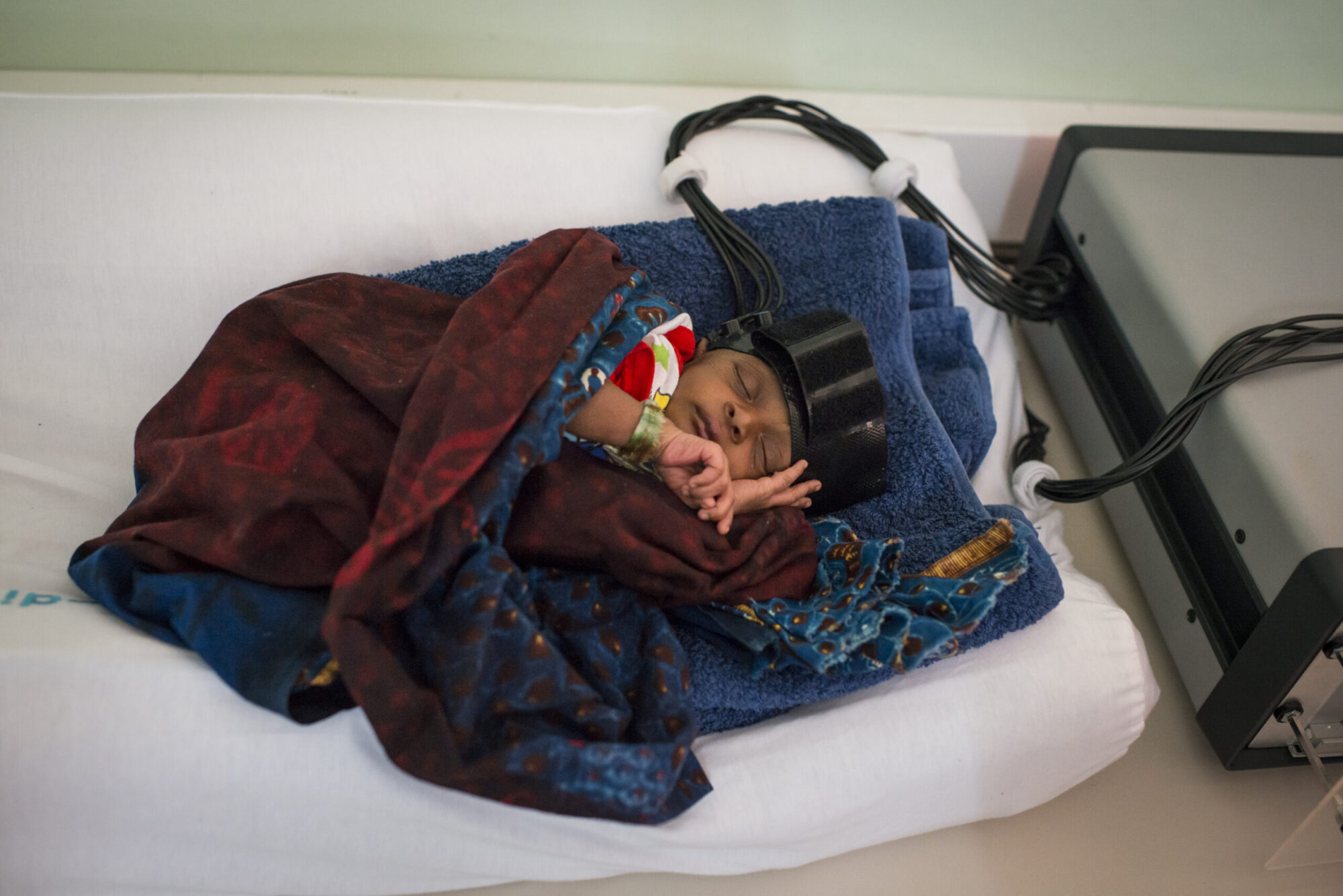 The Brain Imaging for Global HealTh (BRIGHT) Project is a collaborative project led by a team of researchers from University College London, Birkbeck University of London, the Medical Research Council Units in the Gambia and Cambridge, as well as Cambridge University Hospitals. The project is a longitudinal study from birth to 24 months of age, following 200 Gambian infants and 50 infants living in the UK.
The Brain Imaging for Global HealTh (BRIGHT) Project is a collaborative project led by a team of researchers from University College London, Birkbeck University of London, the Medical Research Council Units in the Gambia and Cambridge, as well as Cambridge University Hospitals. The project is a longitudinal study from birth to 24 months of age, following 200 Gambian infants and 50 infants living in the UK.
The aim of the project is to establish brain function-for-age curves of infants in both these settings, in order to gain an insight into the effects that malnutrition, social or environmental difficulties and increased risk of disease, as well as other issues related to living in a low-resource context, may have on infant development. 1 in every 4 children worldwide are undernourished before they reach the age of 5 (UNICEF, 2013), and 1 in every 2 children is thought to live in poverty (Currie & Almond, 2011). However, although there is a large amount of research that highlights the detrimental impact that these conditions have on infant development, not much is known about the neural basis of these consequences.
The BRIGHT Project intends to shed some light into this research area by not only tracking development through behavioural assessments, anthropometrical measures and questionnaires, but also through the implementation of neuroimaging techniques such as Functional Near Infrared Spectroscopy (fNIRS) and Electroencephalography (EEG). In this way The BRIGHT Project is providing the first ever brain imaging of infants in Africa!
This timeline shows the progress of the project so far:

BRIGHT project Director Clare Elwell’s spotlight talk on Brain Imaging in Global Health at the Grand Challenges – Gate’s Foundation Annual Meeting (26th October 2016):
Read more about the first phase of the BRIGHT project here.
Read the research papers resulting from the project:
- Cortical specialisation to social stimuli from the first days to the second year of life: A rural Gambian cohort. Developmental Cognitive Neuroscience.
- Functional Near Infrared Spectroscopy (fNIRS) to assess cognitive function in infants in rural Africa. Nature Scientific Report, 4, 4740.
